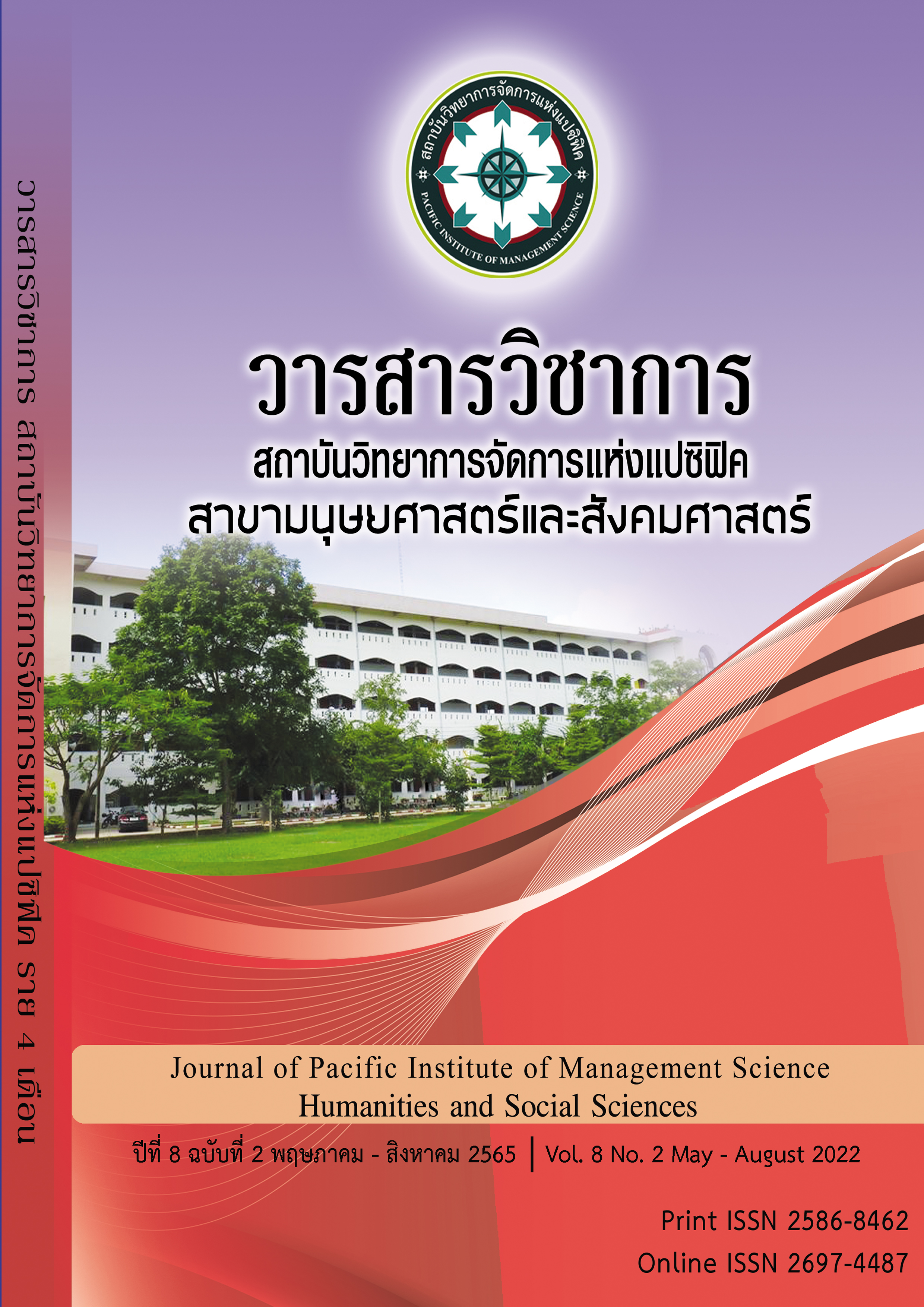Legal Problems and Barriers for Foreigners’ Business Operations and Residency in Thailand.
Keywords:
foreigner, foreign business, reside/residenceAbstract
This research on the legal problems and barriers in the business operations and residency of foreigners in Thailand was conducted to meet the following objectives: 1. To study the history and background of concepts and theories related to business operations and residency of foreigners in the country, the problems and facts concerning the legal issues in the Alien Business Act B.E. 2542 (1999); 2. To study the laws of other countries on foreign business operations such as the Law on Promotion of Foreign Investment No.11/NA of 22 October 2004 of the Lao People's Democratic People's Republic, [similar laws in] the People's Republic of China, the alien business laws of the United States of America and the United Kingdom; 3. To study the legal problems and barriers in the business operations and residency of foreigners in Thailand. 4. To propose amendments to the Alien Business Act B.E. 2542 (1999) and the Immigration Act B.E. 2522 (1979).
Concerning foreigners who come to live in Thailand for business, according to the Immigration Act 1979, Article 34(5) and Article 35(3), which permits foreigners who came to operate a business in Thailand to stay for no more than one year, the provisions have created a burden on foreigners intending to enter and operate businesses in Thailand, because they are required to apply for permission to stay in the Kingdom every year, which is in conflict state policies aimed at promoting investment and the businesses of foreigners. Currently, Article 43 of the Immigration Act stipulates that foreigners who invest with foreign currency in the Kingdom in an amount no less than ten million baht are considered to not be in violation of the provisions of this Act by the committee and, with the approval of the Minister, permission can be granted to allow those foreigners to stay in the Kingdom in numbers exceeding the number of foreigners declared by the Minister in Article 40. However, this number cannot exceed 5% of the aforementioned number in any given year. Article 43 of the provisions shows that the state encourages foreigners who invest no less than 10 million baht to have residency in Thailand. Foreigners who can invest that much money in Thailand are foreigners who operate large businesses. These foreign business operators are not very large in number. Furthermore, small and medium-sized enterprises (SMEs) are currently large in number with foreigners who would like to come and operate SMEs in Thailand. As a result, Article 35 (3), enacted in 1979, is inconsistent with the economic context of today.
From the findings of the present study, the research team has drawn the following conclusions: Foreign business operators have the potential to conduct business, but the researcher team deems it fitting to amend the legal requirements in Article 36 of The Alien Business Act B.E. 2542 (1999) concerning governance, which originally stipulated that Thai nationals or non-foreign juristic persons who provide assistance, support or participate in foreign businesses specified in the list at the end of the Act are subject to a penalty of no more than three years in prison, or fines ranging from one hundred thousand baht to one million baht, or both. Furthermore, the court should rule that such companies cease from providing assistance or support, or rule for the cessation of participation in the businesses, or rule for the cessation of shareholdings or partnerships, as the case may be. Violation or failure to comply with these court rulings must be subject to the penalty of a fine in the amount of ten to fifty thousand baht per day throughout the period of violation. Moreover, there should be specifications of heavier penalties to suppress and combat wrongdoing. As for foreigners who are residing in Thailand, the period of temporary stay in the Kingdom of the business operators should be adjusted to a period of more than 1 year, possibly for a period of 3 years, to attract foreign investment, which would be in line with current government policies and the global economic context.
References
รัฐธรรมนูญแห่งราชอาณาจักรไทย พุทธศักราช 2560
พระราชบัญญัติการประกอบธุรกิจของคนต่างด้าว พ.ศ.2542
นันติยะ มหาเทียน. (2550). ผลกระทบของการแก้ไขพระราชบัญญัติการประกอบธุรกิจของคนต่างด้าว พ.ศ. 2542. นิติศาสตรมหาบัณฑิต มหาวิทยาลัยกรุงเทพ.
สถาบันวิจัยมหาวิทยาลัยอัสสัมชัญ. (2547). การวิเคราะห์การประกอบธุรกิจของคนต่างด้าวที่รับจ้างดำเนินงานให้ภาคเอกชน. สำนักงานเลขานุการคณะกรรมการการประกอบธุรกิจของคนต่างด้าว กรมพัฒนาธุรกิจการค้า กระทรวงพาณิชย์.
Downloads
Published
Issue
Section
License
Copyright (c) 2022 Pacific Institute of Management Science

This work is licensed under a Creative Commons Attribution-NonCommercial-NoDerivatives 4.0 International License.
บทความที่ได้รับการตีพิมพ์เป็นลิขสิทธิ์ของ สถาบันวิทยาการจัดการแห่งแปซิฟิค
ข้อความที่ปรากฏในบทความแต่ละเรื่องในวารสารวิชาการเล่มนี้เป็นความคิดเห็นส่วนตัวของผู้เขียนแต่ละท่านไม่เกี่ยวข้องกับสถาบันวิทยาการจัดการแห่งแปซิฟิค และคณาจารย์ท่านอื่นๆในสถาบันฯ แต่อย่างใด ความรับผิดชอบองค์ประกอบทั้งหมดของบทความแต่ละเรื่องเป็นของผู้เขียนแต่ละท่าน หากมีความผิดพลาดใดๆ ผู้เขียนแต่ละท่านจะรับผิดชอบบทความของตนเองแต่ผู้เดียว







